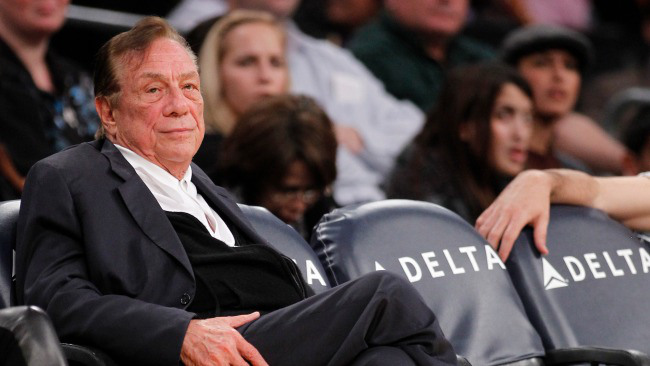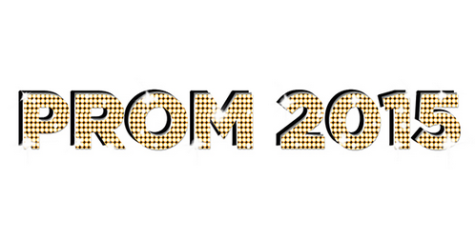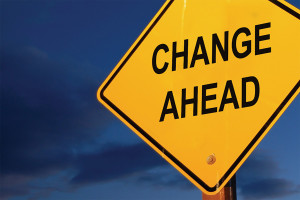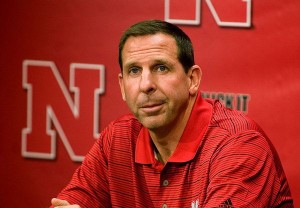An Enduring Bitterness
Sterling’s comments are much bigger than the NBA itself
Donald Sterling
Late last week, TMZ released an audio cell phone file of what it said was a conversation between Los Angeles Clippers owner Donald Sterling and his girlfriend. In the dialogue of the conversation it becomes apparent that an owner in a basketball league that has nearly 80% of African American athletes, appears to make racial comments toward hall of famer Magic Johnson.
“It bothers me a lot that you want to broadcast that you’re associating with black people. Do you have to? You can sleep with them. You can bring them in, you can do whatever you want. The little I ask you is not to promote it on that … and not to bring them to my games. I’m just saying, in your lousy [expletive] Instagrams, you don’t have to have yourself with, walking with black people. Don’t put him [Magic Johnson] on an Instagram for the world to have to see so they have to call me. And don’t bring him to my games.”
The NBA said Saturday it is conducting a “full investigation” into TMZ’s recording and called the published comments “disturbing and offensive.”
To be fair, Sterling was speaking off the record it did sound like he was tired and quite possibly intoxicated, however there is no further proof of that matter. Then again, there might be more sympathy for a guy who is being secretly taped if it wasn’t for his already trouble past with African-Americans in his tenure as an NBA owner.
In 2005, his company agreed to settle a similar racial discrimination suit for an undisclosed sum.
In 2009, Sterling agreed to pay the U.S. Justice Department $2.73 million to settle allegations his companies, which own many homes and apartments in southern California, targeted and discriminated against blacks, Hispanics, and families with children in renting apartments in greater Los Angeles.
The latest case came in 2011, when a jury rejected a wrongful termination suit brought by longtime general manager Elgin Baylor, who is black. Baylor was fired in 2009 and sued Sterling and the Clippers because he believed he was underpaid during his tenure with the team and then fired because of his age and race. A jury later rejected the claim. Sterling tried to control the race of his tenants because, he allegedly said, “Black tenants smell and attract vermin.”
He’s been sued multiple times by individuals on racial charges. The tape is just the latest in a near endless list of terrible comments, often on the record, that have been released through the courts or media.
People’s reaction to the ordeal was very heavy and profound. “I don’t think I have to interpret those statements for you,” the President of the United States, Barack Obama said. “When ignorant folks want to advertise their ignorance, you don’t really have to do anything,” he added. “You just let them talk.” Magic Johnson, whom the comments are directed toward, said on Twitter that the remarks were a “black eye for the NBA,” and he vowed to cease attending Clippers games as long as Mr. Sterling remained the owner. Lakers star Kobe Bryant added a tweet that said, “I couldn’t play for him,” and Miami Heat star and the game’s best player Lebron James said, “there is no room for Donald Sterling in the NBA.”
What I see is a problem that is much, much bigger than the NBA itself. It’s a problem with society, with our social and moral values. Of course we come to condemn Sterling, but is he alone? Are there more people out there like Sterling?
In a league that is 80% black, there is only one majority black owner of an NBA franchise. In the NFL, they have the “Rooney Rule” which requires NFL teams to interview a black candidate for any coaching or executive office once it is open. In the MLB, the number of African American players fall below 10% of the total number of players. Thirteen percent of the athletic directors in the NCAA are of color.
Did you know Shani Davis and four female bobsledders were the only African-Americans representing America in the Winter Olympics? Or that there was only one black person in the top 40 of Sports Illustrated’s Top 50 Most Powerful People in Sports. How about the fact that Tony Dungy and Mike Tomlin are the only head coaches of color to have Super Bowl rings, or how Russell Wilson of the Seattle Seahawks became only the second black quarterback to win a Super Bowl title.
I have complete disrespect toward Donald Sterling and the comments he made, but the point is: Sterling is not alone. It’s always been that way and it will continue to be that way. It’s a truth we must accept, and as much as this particular situation is about Donald Sterling, this really about all of us and what we continue to accept and allow.











